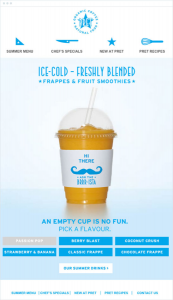Startup Shakes Up Data Black Box In AI Overviews, Perplexity, ChatGPT

Ad agencies, publishers and brands have quietly complained that artificial intelligence (AI) generated search can bury content, but several industry veterans have developed tech that tracks query results to determine website visibility.
Klaus-M Schremser, Josef Trauner, and Thomas Peham — all tech industry veterans — have developed technology that tracks query results of brands and businesses related to information that serves up in AI-based search engine.
“Think of it as ‘Semrush for AI Search’,” wrote Peham in a LinkedIn post, referring to the company’s platform. It’s a part-time gig for Peham, according to his LinkedIn post. He has been working at Storyblok, a content management system that has supported Vodafone, L’Oréal or Nestlé, for about four years.
Otterly.AI, the startup’s name and software-as-a-service platform (SaaS), tracks metrics across AI search platforms AI Overview, ChatGPT, and Perplexity to determine whether these engines trigger a company’s website or its competitors.
It can monitor whether the brands or the companies’ websites are visible in an AI search query, or if the AI search engine returns links with results, so those searching for information can find them. The technology also identifies sentiment and positioning. Otterly.AI claims to have more than 1,000 users as it exists stealth mode.
Ask Google execs — or even Jim Yu, CEO of BrightEdge, who has been tracking query content through his company’s data parser — would most likely give you another answer.
But Schremser and team have experience with data and SaaS. He built an incubator, GroWTF ventures, for SaaS companies. GroWTF, described as an investment and advisory firm launching value-based AI and large language models (LLMs), funded Otterly.AI.
Other companies this startup funded include SuperTurtle.AI, which supports driving audiences and leads from LinkedIn AI content.
The most interesting impact on AI-driven search in 2025 will come from autonomous AI agents, which will have a better understanding of user intent. AI agents can perform actions and predict needs based on search results.
Earlier this year, Gartner predicted traditional search engine volume would fall 25% by 2026 as a result of AI chatbots and virtual AI agents.
Gartner predicts 40% of generative AI tools will become multimodal by 2027, which includes AI agents.
(5)
Report Post







